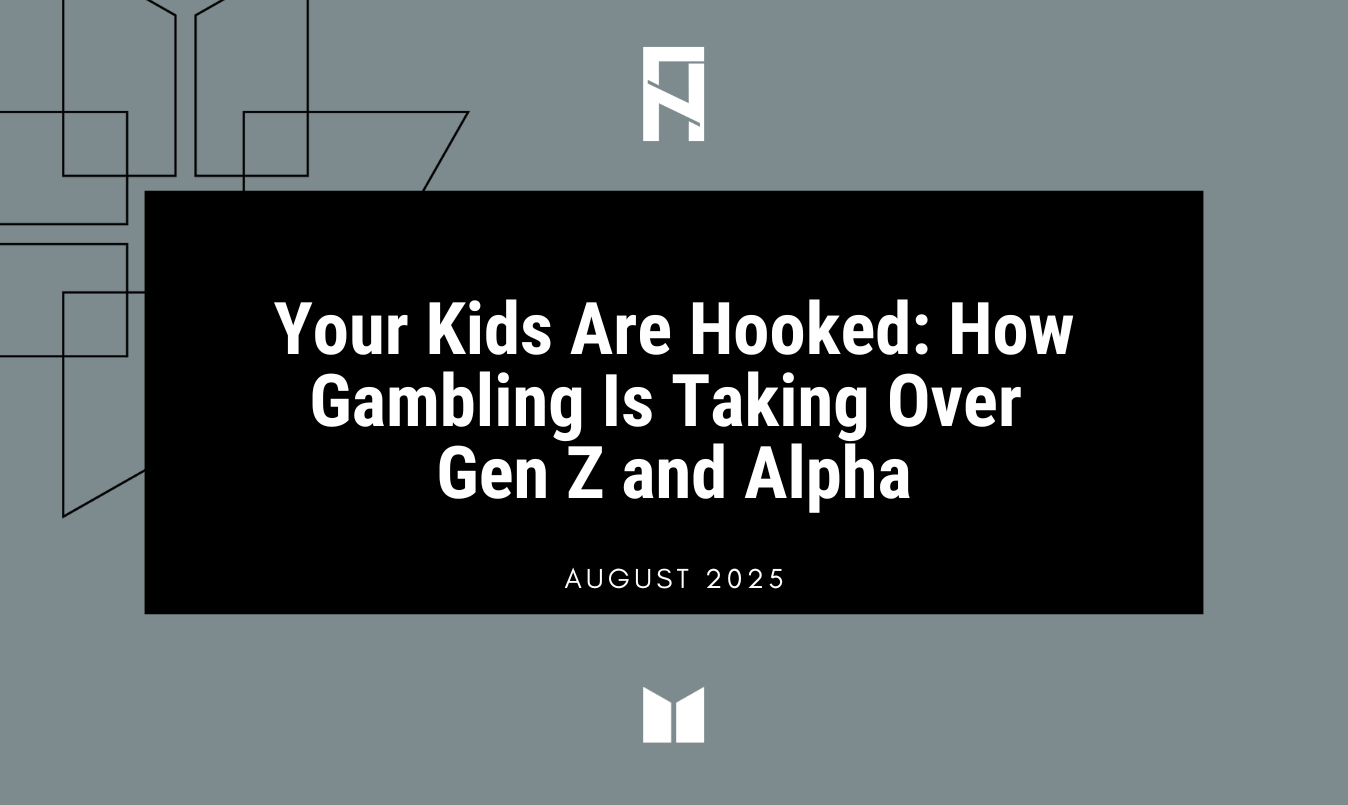In the quiet suburb where I grew up, the dangers facing kids seemed straightforward, almost quaint by today’s standards.
But imagine, if you will, a modern parent—let’s call her Sarah—sitting at the kitchen table, scrolling through her teenager’s bank app on a whim. What she finds isn’t the expected trail of fast-food runs or impulse buys from TikTok shops. Instead, there are cryptic charges: $20 here, $50 there, funneled into digital wallets linked to video games. Her son, a bright 15-year-old who spends evenings glued to his gaming console, brushes it off as “just in-game stuff.”
But it’s not. It’s gambling addiction, hollow and empty, and it will ruin his life. This isn’t the gambling of smoky backrooms or Vegas neon; it’s insidious, embedded in the very fabric of childhood play. And as a fellow parent navigating this bewildering landscape, I urge you: We must wake up to it before it’s too late.
The Rise of Online Gambling
In 2018, the Supreme Court’s decision in Murphy v. NCAA struck down a federal ban on sports betting, opening the floodgates for states to legalize it. What followed was an explosion: By 2025, over 38 states have embraced online gambling, with revenues soaring past $100 billion annually.
Apps like DraftKings and FanDuel bombard us during games, their ads slick and seductive, promising easy wins amid the thrill of competition. It’s everywhere now—in sports broadcasts, social media feeds, even podcasts. But this “entertainment” has trended downward, infiltrating the lives of our youth in ways we never anticipated.
A 2025 report reveals that searches for gambling addiction help have surged by 200% in states post-legalization, correlating directly with expanded access. Among Gen Z, 37% report engaging in sports betting, often starting as early as high school, with 20% of that demographic placing bets online.
Generation Alpha, still in their formative years, is even more vulnerable; studies show that by age 9, over half are exposed to gambling-like elements through apps and games, with daily gaming time jumping 65% since 2020. In Canada, where similar trends hold, 28% of young adults have gambled online in the past year, affecting nearly 1.7 million.
et these numbers capture only the official bets—the parlays on March Madness or Super Bowl props. They miss the covert underbelly, the “surprise mechanics” lurking in video games that train young minds for real stakes without ever labeling it as gambling.
Let me be clear—even games that appear harmless have adopted this same exploitative tactic of ‘surprise mechanics’ that mimic gambling. Even when they are not considered ‘gambling games’ they are nevertheless training our kids to be hardcore gamblers.
The Hidden Dangers: Gambling Mechanics in Video Games
Ah, video games—the modern equivalent of the backyard treehouse, or so we tell ourselves. I remember my own days saving Princess Peach or running a dungeon in Azeroth. But today’s games, from Roblox’s user-generated worlds to Blizzard’s epic fantasies and EA’s sports simulations, embed mechanics that blur the line between entertainment and exploitation.
Take loot boxes: These virtual chests, purchased with real money for random rewards, function like slot machines—pull the lever (or click the button), and hope for the jackpot. In Roblox, kids as young as 8 chase “limited edition” items; in Overwatch or FIFA, players shell out for a shot at rare skins or players. EA once euphemistically called them “surprise mechanics,” but the thrill of uncertainty mirrors gambling’s core allure.
The data is alarming. A 2025 study of over 1,400 gamers found loot box spending strongly linked to real-world gambling and video game addiction, with buyers showing higher rates of mental health issues like depression. In the UK, 1 in 10 young gamers accrue debt from these, and 31% lose track of expenses.
Yet because they’re not classified as gambling—regulators argue the rewards aren’t “real” money—these mechanics evade oversight. This loophole renders official youth gambling stats woefully incomplete; the true scope includes millions hooked on these gateways, where a $5 purchase can spiral into habitual risk-taking.
Worse still, influencers and streamers normalize it all. For young boys especially, Twitch and YouTube idols like those in the CS:GO scene flaunt massive bets on skins—digital cosmetics wagered on like chips. Pokemon card openings turn into high-stakes spectacles, with creators ripping packs worth thousands, cheering “big wins” to rapt audiences.
Psychological and Social Impacts on Young Minds
Addiction wears many masks, but its essence remains the same: a thief that steals joy, agency, and relationships. Whether it’s pills swallowed in secrecy, booze sipped to numb the edges, or bets placed in the dead of night, the human soul bends under its weight. Gambling is no different, and as parents, we must approach it with the same vigilance we reserve for drugs, alcohol, or pornography. These aren’t mere vices; they’re assaults on the developing self, hijacking the brain’s reward pathways and fostering a cycle of shame and compulsion.
The signs are subtle at first. Secretive phone use—your teen guarding their screen like a state secret. Unexplained money vanishing from allowances or part-time jobs, chalked up to “forgotten” expenses. Mood swings after gaming sessions: Euphoria from a “win,” followed by irritability or withdrawal when luck turns.
Gambling addiction correlates with anxiety, depression, and even suicidal thoughts, with 96% of cases co-occurring with other disorders. For teens, it amplifies identity struggles—Gen Z’s financial precarity, Alpha’s tech immersion—turning escapism into entrapment. Cross-addictions are rampant; a loot box habit might lead to substance use, as the brain seeks ever-stronger hits.
What Can I Do as a Parent?
- Talk to your child about gambling. With the same conviction and sincerity you discuss all the vices of life that can harm them.
- Use ChatGPT and ask if a game “has any surprise mechanics that can be considered gambling or reward the brain the same as gambling”. You will gain insight and peace of mind, knowing which category you’re dealing with. Plenty of video games are still just fun. Knowing is half the battle.
- Contact your representative and senator. Serious conversations about exploiting kids is underway in Europe, and American lawmakers are increasingly aware of this problem. But not yet enough to act.






